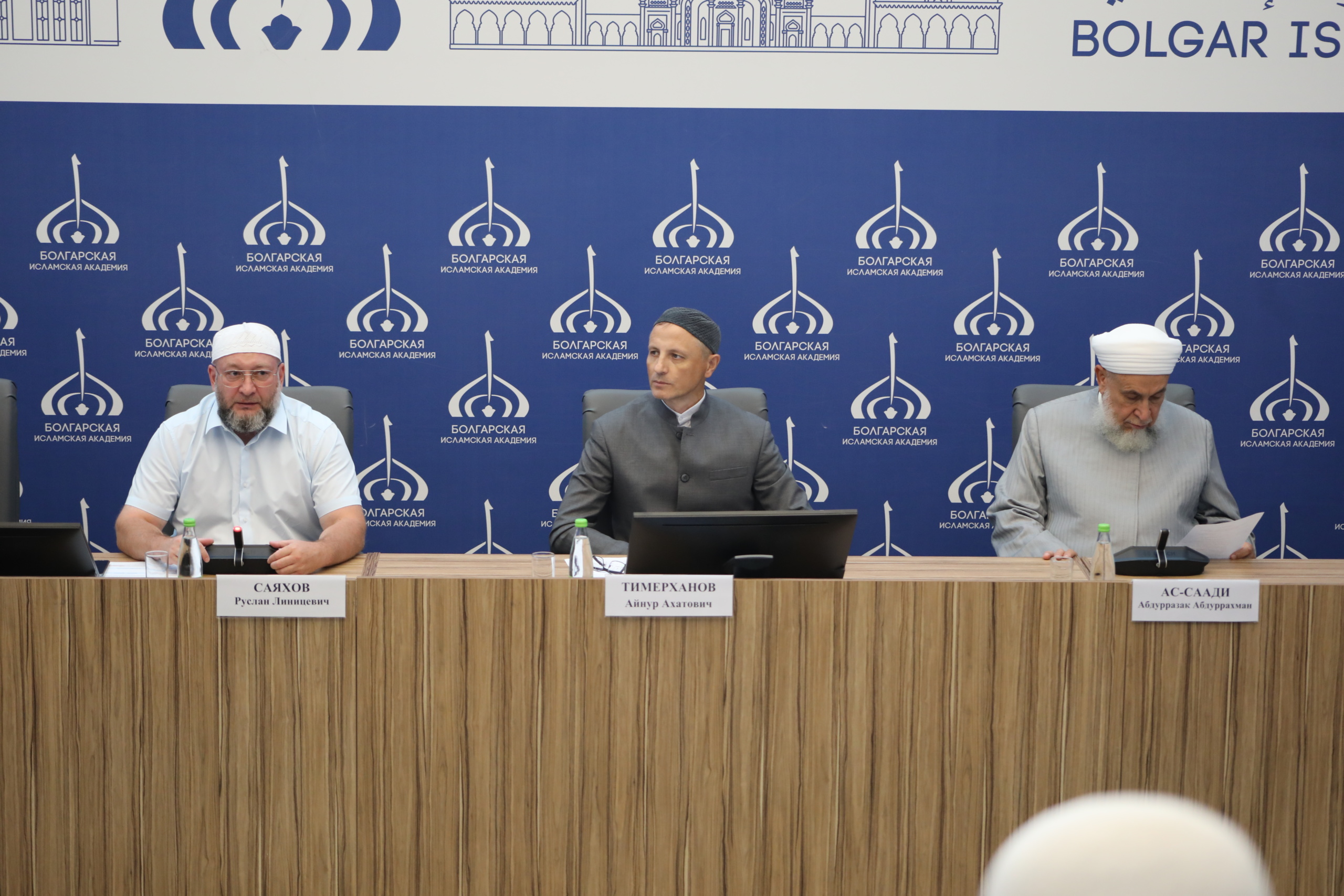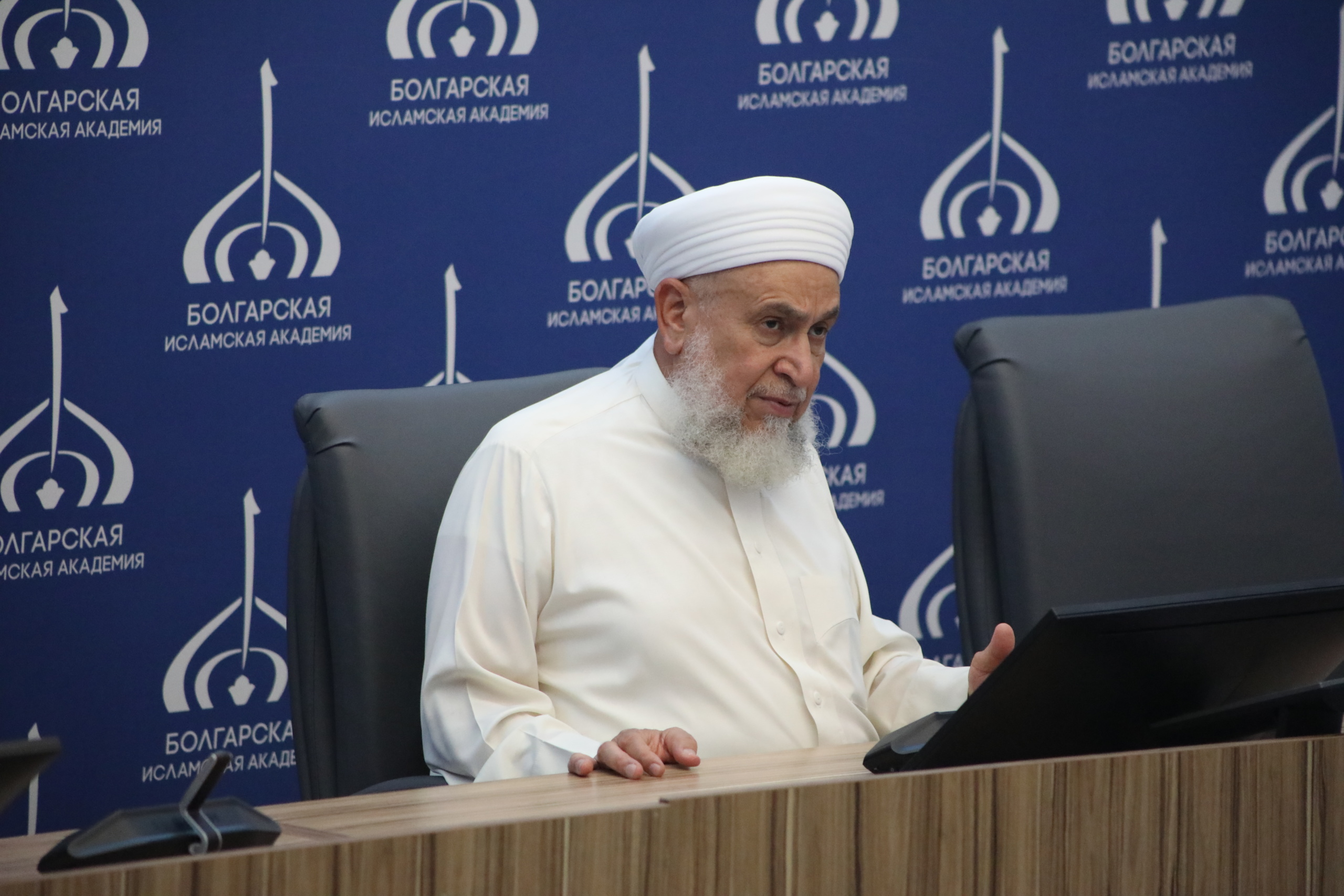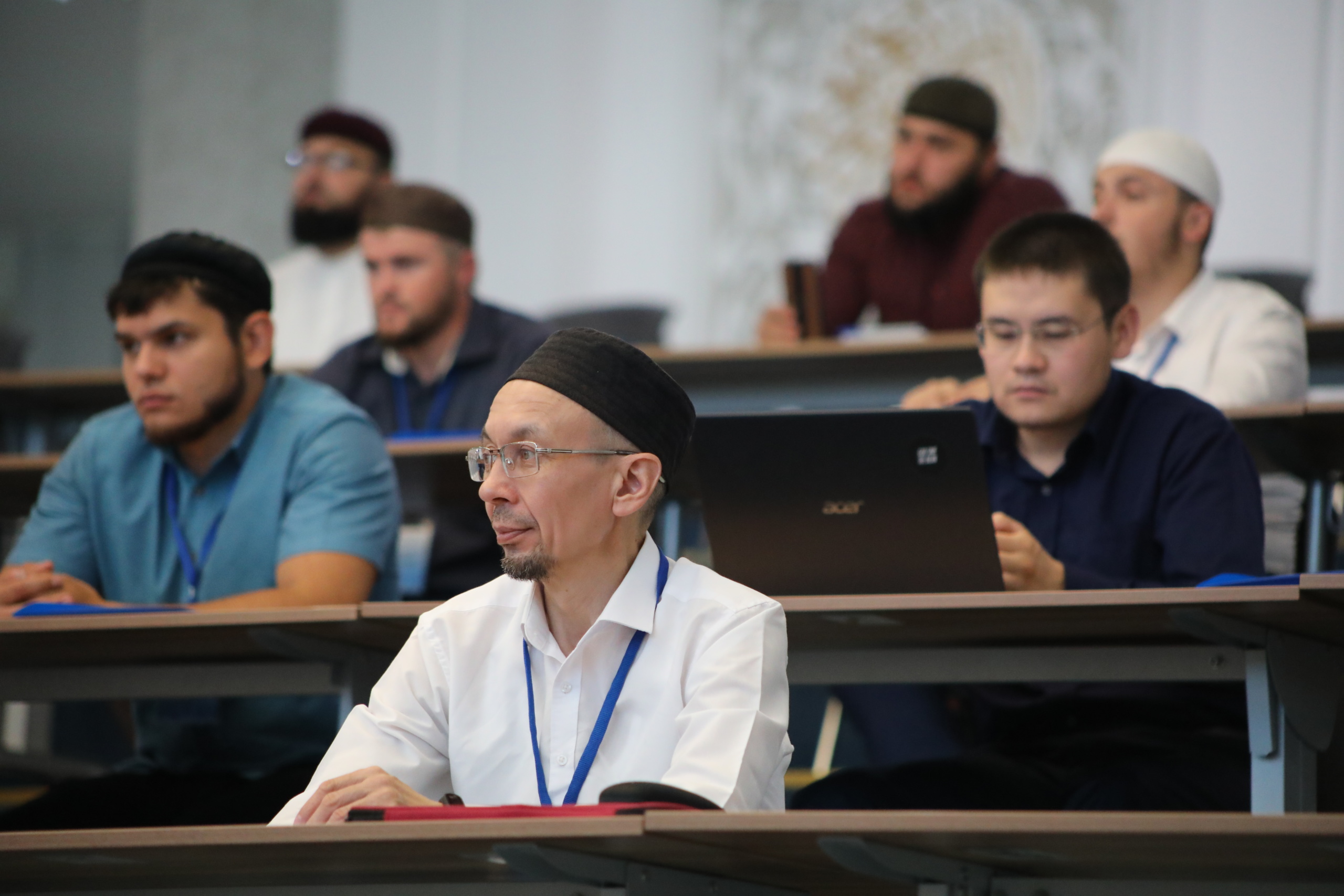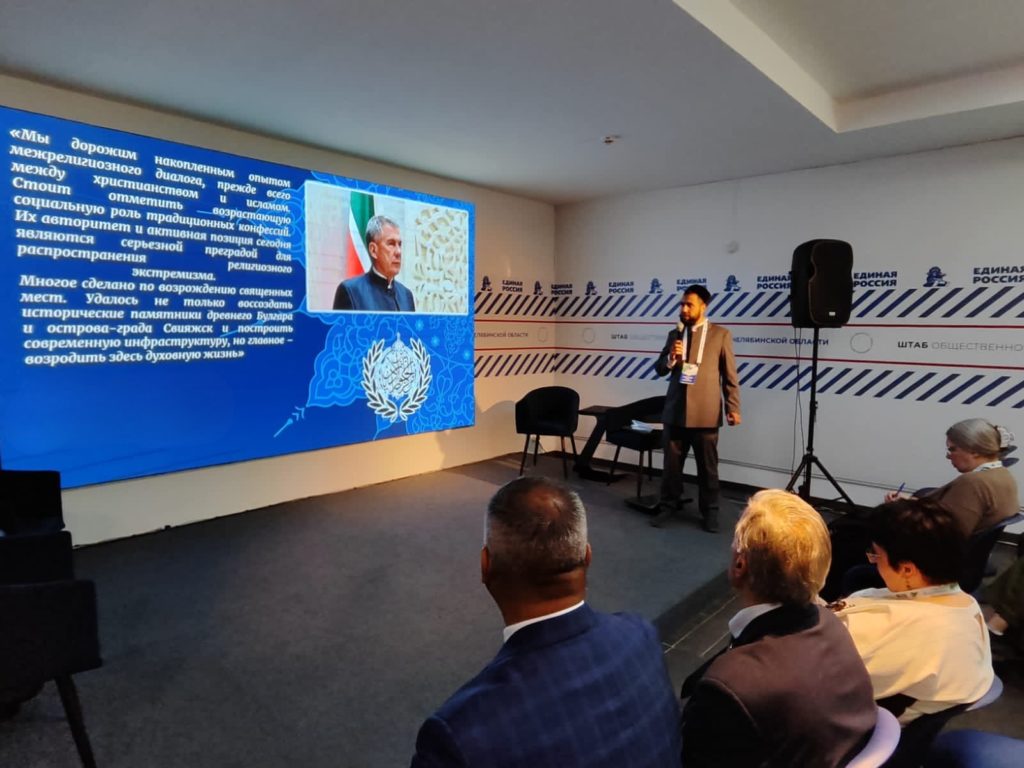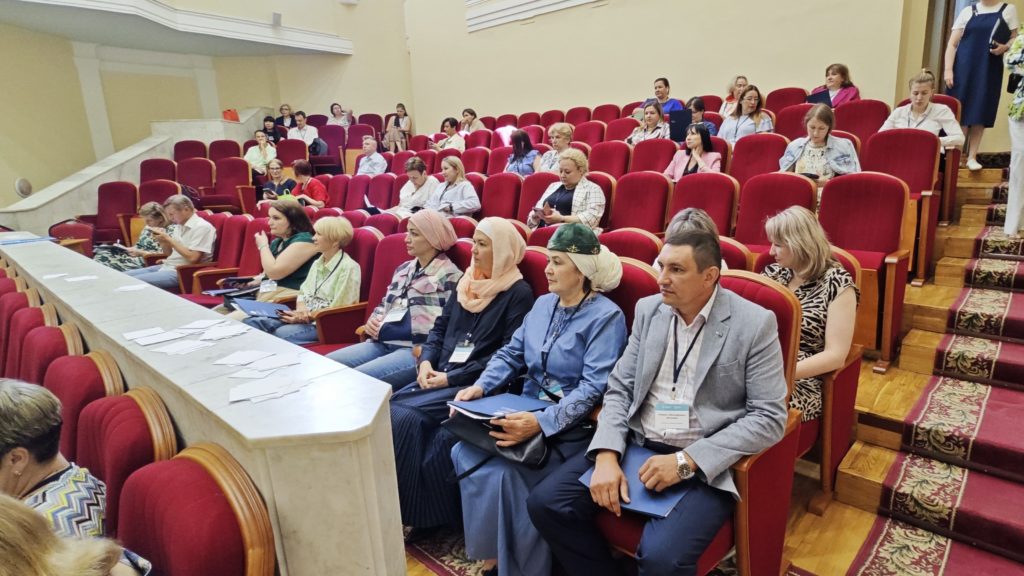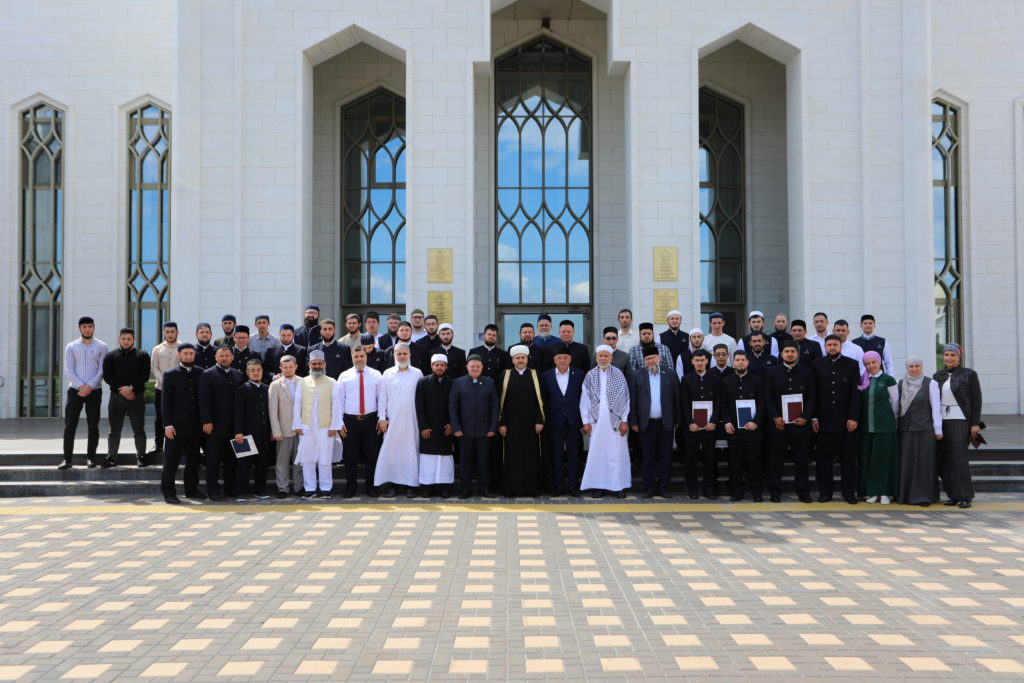The opening ceremony of the annual summer school for the applicants of Bolgar Islamic Academy had taken place on July 25. This year’s event attracts more than 60 participants from 15 regions of Russia, as well as from the CIS countries and other countries around the world. Participants include educational institution graduates, Islamic university lecturers, and religious figures.
Addressing the attendees, acting rector of the Academy Ainur Timerkhanov expressed his appreciation for the keen interest in receiving religious Islamic education at Bolgar Islamic Academy.
“Despite its youth (the Academy celebrates its fifth anniversary this year), Bolgar Islamic Academy is a dynamically developing higher education institution with a strong material and technical base and a highly professional teaching staff; it is actively expanding the vectors of its activities. Our Academy is the highest link in the system of Islamic religious education, and it is intended to provide a solid foundation for the full development of Russia’s domestic system of Islamic education, as well as the training of competitive scholars and religious figures,” the Academy’s acting rector addressed the applicants.
Ainur Timerkhanov recalled that an international dissertation council was established in 2019 at Bolgar Islamic Academy and that it now functions to confer the theological degrees of doctor of Islamic studies in the fields of Islamic law, Islamic doctrine, Quranic and hadith studies. There are also plans to accept dissertations in other fields for defense in the near future.
“You will get to know our teaching staff, which consists of both domestic and foreign theologians. It should be noted that the Academy employs more than 15 domestic lecturers in addition to five foreign lecturers, and the visiting-professor project is being successfully carried out. In recent years, we have been paying cooperation with prestigious Islamic universities and centers both domestically and abroad a special amount of attention,” the Academy’s acting rector concluded his welcome remarks wishing the summer school attendees fruitful work.
Ruslan Sayakhov, the vice-rector for scientific activities at Bolgar Islamic Academy, then gave a presentation to the attendees about the specifics of the Academy’s research endeavors.
“The Academy’s research activities are primarily carried out in three structural divisions, which are coordinated by the Office of Science: the Center for Islamic Heritage, the Center for Interreligious Dialogue, and departments. In addition to consolidating and deepening previously acquired specialized knowledge, you must understand how your own research is conducted and learn how to answer pressing questions of our time independently. You and I must share the reliable knowledge we have gained not only with our own audience, but also with representatives from other cultures. This is one of our primary areas of focus,” Sayakhov clarified.
Sheikh Abdurrazzak as-Saadi, a visiting professor at the Academy, welcomed the summer school participants and noted that the level of training of applicants, including their knowledge of the Arabic language, is increasing year after year. It is nice to see religious figures among the attendees because, according to the Academy’s lecturer and sheikh, the value of religious knowledge gained is high both in this world and in the eternal life.
Following the solemn opening ceremony of the summer school for applicants, sheikh as-Saadi gave an introductory lecture in which he spoke in greater detail about the history of the emergence and development of individual Islamic theological trends.
Reminder: it is planned to organize high-quality preparation of applicants for admission tests at the Academy as part of the curriculum: to strengthen speaking skills in Arabic, to familiarize them with the methods of planning and conducting research work, and to prepare for the defense of research works. Thus, future master’s and doctoral students will have the ability to immerse themselves in the atmosphere of the Academy’s scientific and educational activities while preparing for admission tests, learning how to select relevant and popular research topics, write research prospectuses, and defend them before the commission. This is one of the most important knowledge, skills, and abilities required for successful study at the Academy.


